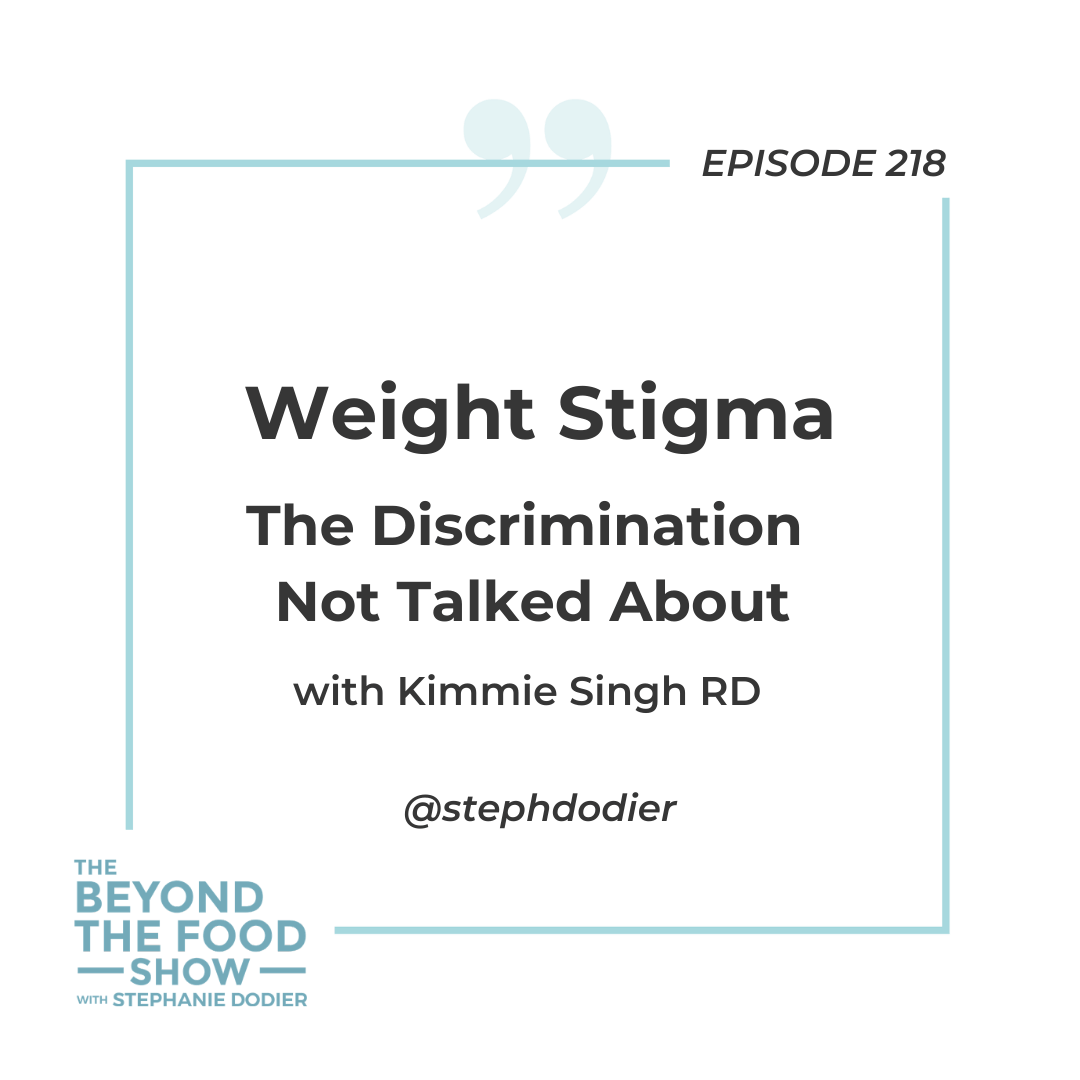In today’s episode, we’ll talk about how to get unstuck
It’s illegal to discriminate based on sex and absolutely unacceptable in society.
It’s also illegal to discriminate based on race and absolutely unacceptable in society.
Now, it’s illegal even to discriminate based on sexual orientation and becoming rapidly unacceptable in society.
But…it’s legal to discriminate based on body weight and completely acceptable in society.
Whatttt? Yup.
Weight Discrimination
Not only is weight discrimination legal, but the diet culture absolutely encourages it as well. Marketing campaigns use the think “before and after” weight loss picture to sell the latest diet.
“This picture will inspire you to achieve your goals and see what’s possible for you!”? What do you think would happen if a “before and after” skin whitening procedure picture was posted with this caption? First, get beyond the fact that it’s illegal and it would be the end of the company using that marketing technique.
Yet every day, ad agencies and weight loss companies encourage the use of pictures of women in their “before and after” bathing suit and it’s ok. That is to say, shaming people for their body weight is acceptable.
The Dangers of Weight Discrimination
That’s weight stigma, a.k.a. weight bias or weight discrimination. In fact, weight stigma is a known danger to one’s health and a studied risk factor for adverse psychological and behavioral issues. That includes depression, poor body image, and binge eating.
“Weight stigma poses a significant threat to psychological and physical health. It has been documented as a significant risk factor for depression, body dissatisfaction, and low self-esteem. Those who experience weight-based stigmatization also:
- Engage in more frequent binge eating
- Are at an increased risk for eating disorder symptoms
- Are more likely to have a diagnosis for binge eating disorder (BED)
Victims of weight stigma report physicians and family members are the most common source of weight bias. Among family members, weight-based teasing and diet talk are linked to binge eating, weight gain, and extreme weight control behaviors. Weight bias in health care is another important concern.
Research shows that healthcare providers, when talking to obese patients, tend to:
- Provide them with less health information
- Spend less time with them
- View them as undisciplined, annoying, and noncompliant with treatment.”- Extract from the National Eating Disorder Association website
For this very important episode, I sought the help of an expert in weight stigma Kimmie Singh RD. Kimmie is a fat Registered Dietitian expert in weight stigma based in New York City. Kimmie presents and consults on weight stigma in dietetics. Her Health at Every Size private practice supports clients with eating disorders and disordered eating heals their relationships with food and body.
What you’ll learn listening to this episode:
- What is weight stigma?
- Weight bias & obesity bias
- Internalize vs external weight stigma
- The history of weight stigma and fat acceptance
- Weight and stress relationship
- How to cope with weight stigma
- How to reduce weight stigma
Mentioned on the show:
Check out these podcast episodes:
Research
Connect with our guest







